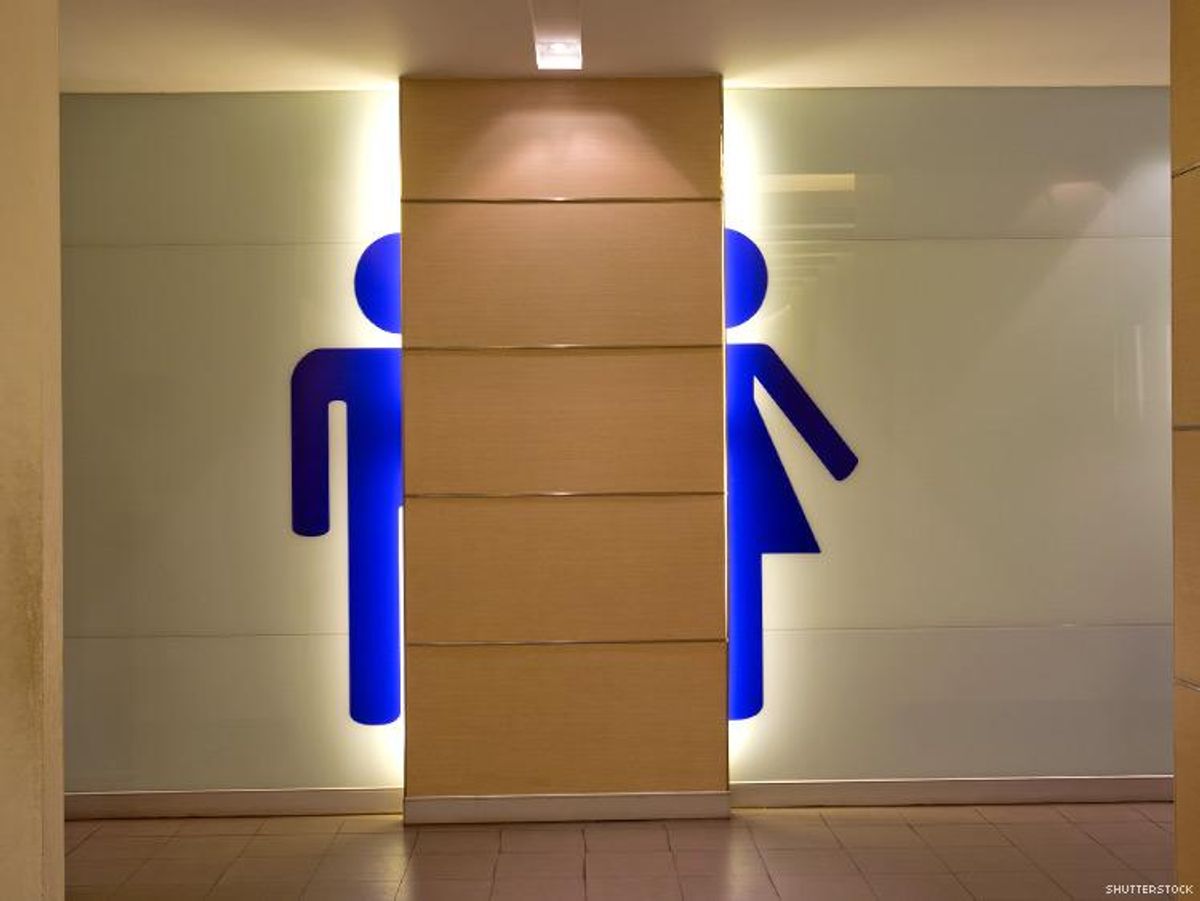New research from the National Center for Transgender Equality is adding some much-needed hard facts to the current political battle raging over what restrooms trans people should use.
Data from NCTE's 2015 U.S. Transgender Survey shows that the discussion is much more than theorhetical -- the lack of safe, secure public restroom options is doing real harm to trans people in the U.S.
In a press release that shared some of the preliminary findings of the survey, NCTE noted that 59 percent of trans people had avoided a public restroom in the last year because of fears of confrontation. Almost a quarter (24 percent) had been told they were using the wrong restroom, while 12 percent reported being harassed, attacked, or sexually assaulted in bathroom in the last year.
Among more than 27,000 self-identified trans people who responded to the 2015 survey, nine percent said they had been denied access to a restroom in the past year. Nearly a third (31 percent) indicated they had avoided eating or drinking so they would not need to use a public bathroom, while eight percent reported experiencing a urinary tract infection or other kidney-related health issue in the last year due to avoiding public bathroom use. The full report on the results of the sweeping survey are expected later this year.
The U.S. Transgender Survey is a massive undertaking by NCTE intended to collect data on the under-reported and -researched trans community, looking to quantify the experiences of trans people in the United States.
It builds upon NCTE and the National LGBTQ Task Force's 2009 U.S. Transgender Discrimination Survey, in which more than 6,500 people participated. The groundbreaking report published in 2011 from the results of the 2009 survey -- "Injustice At Every Turn" -- has been critical in highlighting the unique struggles of the trans community, and trans people of color in particular.
When combined with recent estimates of the number of transgender people living in the U.S., the new survey's results demonstrate that refusing trans people safe bathroom access does inflict considerable harm.
Earlier this year, the Williams Institute at the University of California Los Angeles School of Law estimated that there are approximately 1.4 million trans people in the U.S. Applying the 2015 Trans Survey's rates of harassment and discrimination to this overall population, there easily could have been as many as 168,000 instances of harassment, physical abuse, and sexual assault against trans people in the last year, and 112,000 cases of kidney issues and urinary tract infections. Other recent research has linked denial of bathroom access to an increase in the already disproportionately high suicide risk for trans people.
While concrete data on the transgender community is hard to come by, that hasn't chilled a heated nationwide debate about where transgender people -- especially students -- should be allowed to relieve themselves.
A total of 21 states have filed a pair of federal lawsuits against the Obama administration over Department of Education guidance that suggests trans students be allowed to use bathrooms and locker rooms that correspond to their gender identity. Equal access for transgender people has become a central point in the pitched battle over North Carolina's House Bill 2, which requires trans people in the state to use public bathrooms that do not match their gender identity, among other anti-LGBT provisions. The Department of Justice and LGBT advocacy groups have filed a series of suits against HB 2, with the DOJ denouncing the law as unconstitutional and calling it "state-sanctioned discrimination" that should not be allowed to take effect.
On the other side of the aisle, the current draft of the 2016 Republican Party platform includes a plank opposing measures that allow trans people to use the appropriate restroom. And conservatives continue to argue that allowing trans people to use restrooms appropriate for their gender identity places women and girls at risk of sexual assault, though those claims have been thoroughly and repeatedly debunked. In fact, there has never been a single verified report of a transgender person assaulting or otherwise harassing a cisgender (nontrans) person in a U.S. bathroom or locker room.
In an effort to counter the anti-trans narrative being pushed by right-wing activists and politicians, several LGBT organizations have joined forces to air an ad during the Republican National Convention that challenges those assumptions. It's part of a larger campaign to raise awareness of the struggles of trans people face, and shine a light on the very real dangers they often encounter using public restrooms.
But there is good news amid this sobering reality: Massachusetts this month proved that bipartisan action to protect the rights of trans people is possible. Republican Gov. Charlie Baker signed legislation that protects trans people from discrimination when using restrooms, locker rooms, and other public accommodations in that state, assuring them the right to use the facilites that correspond to their gender identity, just like cisgender people do every day.


















































































